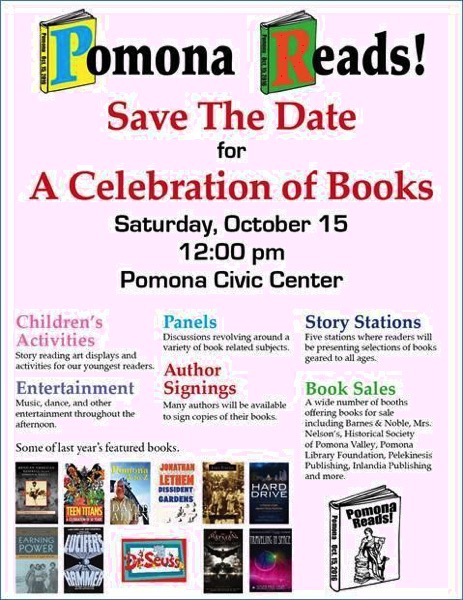You Can Please Some of the People Some of the Time… None of the People All of the Time: A History of the Art of Adaptation in Movies like Dune, The Godfather, Harry Potter and More!
Dr. Rosanne Welch speaks on A History of the Art of Adaptation in Movies like Dune, The Godfather, Harry Potter and More! at the California State University, Fullerton Library
Part of the program series for Dune by Frank Herbert: A 50th Anniversary Celebration.
Watch this entire presentation
Transcript:
Gidget, in the 50’s, is a different story and I think this one is really sad. When you think of Gidget, if you thin of anything, you think of fluffy girl hanging out at the beach – cutesy, cutesy, cutesy. The crazy thing is, when this was first written — there’s an actual woman who is actually the maitre’d at Duke’s in Malibu right now in her 70’s and she is Gidget. Gidget is merely a nickname. it means girl-midget. So short girl. Petite girl and in her real life she grew up — her Dad, Fredrick Kohner, writer of early 50’s television shows — lived in Hollywood — and she would go to the beach every day and in a world where we overprotect our children today, I can’t even fathom that at 16 she would get in the family convertible, drive to the beach, stay all day without a cell phone or check-in time or any information, hang out with a bunch of 20-something surf dudes and learn how to surf in the ocean with no parent watching her. That was her actual life and the book is about how she strive to become as good a surfer as these men did, so that they would accept her not as a cute chick but as a surfer.
Read a story about the “real” Gidget in Hollywood Digs
About this talk
Dr. Rosanne Welch (RTVF) speaks on the craft of history of film adaptations from the controversy of the silent film Birth of a Nation (protested by the National Association for the Advancement of Colored People in 1915) to Breakfast at Tiffany’s (to which author Truman Capote famously said, “The only thing left from the book is the title”) to The Godfather . Naturally, the behemoth in adaptation – Harry Potter (which depended on the relationship created by adapter Steve Kloves and author J.K. Rowling) will be discussed, as will the subject of this month’s celebration: Dune.
Date: Wednesday, October 14, 2015 Time: 1:00pm – 2:00pm
About Dr. Rosanne Welch
Dr. Rosanne Welch is a professor in the Low Residency MFA in Screenwriting Program from Stephens College, California State University, Fullerton, Mount San Antonio Community College and Cal Poly Pomona. In 2007, she graduated with her Ph.D. in 20th Century U.S./Film History from Claremont Graduate University. She graduated with her M.A. in 20th Century United States History from California State University, Northridge in 2004.
Welch is also a television writer/producer with credits for Beverly Hills 90210 , CBS’s Emmy winning Picket Fences and Touched By An Angel . She also writes and hosts her own podcasts on 3rdPass.media, her first one titled “Mindful(I) Media with Dr. Rosanne Welch.”
Her upcoming book, “Why The Monkees Matter: Teenagers, Television and American Pop Culture” will be published in Fall 2016
Three Ring Circus: How Real Couples Balance Marriage, Work and Kids and The Encyclopedia of Women in Aviation and Space are two books she has written. Los Angeles Times and the Journal of Screenwriting hold some of her published articles.
![Adapting Gidget from A History of the Art of Adaptation [Video] (1:07)](https://rosannewelch.com/wp-content/uploads/2016/09/adapt-18-gidget.jpeg)






![Monkees Writers from 1960’s TV Censorship and The Monkees with Dr. Rosanne Welch [Video] (1:15)](https://rosannewelch.com/wp-content/uploads/2016/09/monkees-censorship-04-monkees-writers-1.jpeg)

![More on Adapting Cat on a Hot Tin Roof from A History of the Art of Adaptation [Video] (0:44)](https://rosannewelch.com/wp-content/uploads/2016/09/adapt-17-cat-2.jpeg)
![Why The Monkees Matter Book Signing – Book Soup, Hollywood, CA – September 19, 2016 [Video]](https://rosannewelch.com/wp-content/uploads/2016/09/wmm-signing-book-soup.jpeg)



![Who Were/Are The Monkees? from 1960’s TV Censorship and The Monkees with Dr. Rosanne Welch [Video] (1:13)](https://rosannewelch.com/wp-content/uploads/2016/09/monkees-censorship-03-who-were.jpeg)
![Adapting Cat on a Hot Tin Roof from A History of the Art of Adaptation [Video] (0:56)](https://rosannewelch.com/wp-content/uploads/2016/09/adapt-16-cat-1.jpeg)
![Who Wrote The Monkees? from1960’s TV Censorship and The Monkees with Dr. Rosanne Welch [Video] (0:48)](https://rosannewelch.com/wp-content/uploads/2016/09/monkees-censorship-02-who-wrote.jpeg)